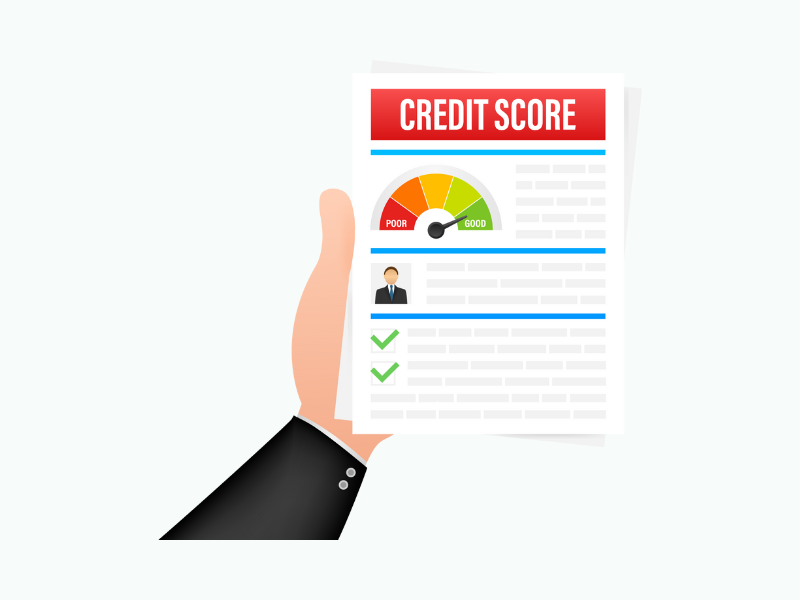How to Get an 800+ Credit Score

If you are looking to buy a home in the near future, you will need a good credit score. If you want to buy a car, you will need a good credit score.
If you are looking to open a fancy travel credit card, guess what you will need? That’s right, a good credit score!
Your credit score determines your ability to borrow money in order to purchase items that you cannot afford in full with cash. This is how the bank or lender thinks of you when they come to lend you money.
They want to make sure that you are a responsible lender who is able to repay them.
This is why it is important to know what your credit score is, how to raise it to be above 800 points, and how to maintain that score so you always have a healthy borrowing limit.
Quick Takeaways
- Get your first card as early as possible.
- Become an authorized user of someone who has a good credit history.
- Always pay off your credit card balance on time.
- Diversify your credit lines.
- Keep your credit utilization low.
Fico Score

Your Fico score is just another way of saying your credit score. The credit card score ranges from 300-850. The lower the score, the riskier the borrower. Thus, you always want your score to be towards the top of the range.
This score consists of the following 5 aspects: 35% Payment History, 30% Amount of Debt, 15% Length of Credit History, 10% New Credit, and 10% Credit Mix.
Those are the metrics that the credit unions use to determine your score and the likelihood of your eligibility to borrow money.
Here is my 6-step process to help you build an excellent credit score.
Step 1: Get Started Early

The first thing you want to do to start building your credit is to have a long history of credit. As you can see, this makes up 15% of your score. The way to do that is to get a credit card as soon as you turn 18.
If you want to get started before that, you can become an authorized user on your parent’s credit card.
This is great because it will increase your length of credit history but also help you with the payment history criteria since you will be considered to be making payments with the primary cardholder.
However, if your parents are not good with their credit cards, this will hurt you rather than help you. Thus, you must ensure you are becoming an authorized user of someone whose credit cards and loans are paid off responsibly.
Step 2: Make on-time credit card payments

Next, we will tackle the payment history. As I mentioned earlier, this is 35% of your score. Since this criterion makes up the majority of the score, you can tell how important it is.
You want to always make your payments on time. Always pay off what you spend at the end of the billing cycle. This will ensure that you never miss a payment; you will save a ton of money on interest; and it will help you open more cards in the future.
The worst thing you can do is carry over a balance. You will be paying upwards of 20% interest on your balance, which will put you more in debt, and missing payments will bring down your score drastically.
This is why it is important to be responsible with your first credit card, as it will set the tone for any other line of credit card you decide to open.
Step 3: Establish Multiple Credit Lines

Now we want to tackle the amount of debt criteria. This makes up 30% of your overall score.
Let’s say you only have one card and the limit is $500. If you use up the entire $500, your score is going to drop because you are signaling to the credit unions that you are spending way too much.
This is why you will need to open up more credit cards, which will increase the credit limit, giving you some room to spend.
Say you opened up 3 more cards (not at the same time). Each has a $1000 limit. Now you have a total of 4 credit cards with an overall limit of $3,500. Now, spending $500 is not that big of a deal since you have a lot of wiggle room left in your spending limits.
Step 4: Obtaining New Credit

Getting a new credit card is fun and exciting. However, you should not abuse it or it will drop your score.
Every time you apply for a new credit card, your score will take a small hit as the bank will perform a hard inquiry on your credit report. They need to check if you are a safe borrower or not.
But it will go back up in a month or two if nothing else is affecting your score.
This is why you need to be strategic when applying for a new line of credit. If you are looking to buy a home or are in the process of getting a mortgage, wait till you close on it. The same applies if you are going to get a car.
If you just got a new credit card, it's advised you wait a minimum of 3-6 months before applying for your next card. So it's essential to control your excitement when starting out.
Step 5: Manage Your Spending

You want to be responsible when using your credit cards. Do not buy anything you cannot afford to pay back at the end of the billing cycle.
Better yet, you should not be utilizing more than 10% of your credit card's overall limit.
Say that you have five cards and each card has a limit of $2,000, which gives you an overall limit of $10,000 across all your cards. You should keep your spending limited to 10% of that $10,000 across all the cards. This means you should be using about $1,000 spread across your 5 credit cards.
What should you do if you spent $1,000 on your cards and it's not the end of the month yet and you need to put more spending on your cards? In this case, go and pay off the $1,000 so your utilization drops from 10% to 0% and you can start spending again.
Step 6: Increase Your Credit Card’s Limits

Finally, once you have built a relationship with your credit card issuers, you can always ask them to increase your limits on the cards.
I would only do this after being with a bank for a couple of years, as they now have history to judge you by. If you have a good relationship with a bank, it should be fairly easy to ask them to increase your limits.
Getting those credit limit increases is essential because it will decrease the amount of debt you have on your credit lines, which will consequently push your score up.
Conclusion
Your credit score is an important aspect of your everyday life. Lenders use it to determine if you are eligible to borrow money from them.
Having a good credit score affects whether or not you qualify for a mortgage, a car loan, or an everyday credit card. It also determines what interest rate a bank will give you on the loan.
This is why it is essential to start building your credit score early and continue to maintain it at a high standard.
Have a great week!
Muhamed
📖 Quote of the Week
The greatest wealth is to live content with little ― Plato

